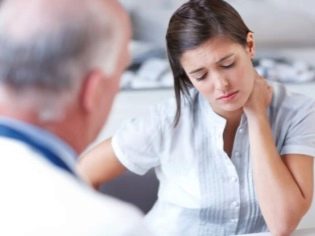After how many days you can do re-IVF and what is the probability of success?
The first in vitro fertilization protocol is often inconclusive. Pregnancy does not occur in about half the cases. There is also a high probability of missed abortion or miscarriage in the early period. After this, a reasonable question arises as to when you can try again. We will tell about it in our article.
Why attempts are unsuccessful?
If an IVF attempt fails, it is important to establish the true reason why the pregnancy did not take place. It depends on which factor or combination of reasons it influences whether the chances of pregnancy increase during a subsequent protocol. Reasons for failure can be very different.
Often, embryos obtained by fertilizing maternal eggs with spermatozoa of a husband or donor do not meet stringent quality requirements. They do not demonstrate high vitality, in fact are not strong and healthy. Such embryos have almost no chance of successful implantation.
Embryos can be injured during transfer, for example, if transfer is too fast. They also die, pregnancy does not occur. Causes may be hidden in the insufficient quality of biological materials - oocytes and sperm.
Often the protocol fails due to overly aggressive hormonal stimulation of the ovaries in the first phase of the menstrual cycle in the first protocol. At the same time in the woman's body there is an overabundance of estrogen, FSH, ovarian hyperstimulation syndrome may develop, which at times reduces the already far from 100% probability of successful completion of the protocol.
A woman can get sick with influenza or ARVI after transfer of fertilized eggs into the uterus. Her long-standing chronic diseases can be exacerbated by aggressive hormone therapy. Sometimes the reason for the absence of pregnancy after an IVF attempt is autoimmune processes, as well as genetic incompatibility of partners. Sometimes doctors fail to obtain a sufficient number of eggs, and sometimes a large number of fertilized eggs do not pass the selection for suitability for transfer.
Quite often, implantation is hindered by the burdened obstetric history of the patient - endometriosis, pathologies of the uterus and cervix can be a significant barrier to treasured motherhood.
Previously performed abortions, scraping (including diagnostic ones) can make the endometrium non-uniform and too thin for the fertilized egg to successfully attach to it and begin to develop further.
Even if the pregnancy has come, and ultrasounds and tests for hCG have confirmed this, after IVF, the probability of a fading pregnancy or miscarriage at an early period is quite high. This, again, may be a consequence of hormone therapy, and is also caused by a host of reasons.
Pregnancy after IVF is a special one; such future moms need more careful monitoring. But even the best doctors, alas, cannot always prevent the death and detachment of the ovum.
Unsuccessful IVF, no matter how it ends, may be a consequence of the woman's age. The optimum age when the success rate is highest is the age of up to 35 years, then every year the probability of a successful pregnancy decreases.
After an unsuccessful attempt, it is important to gather the will into a fist, and no matter how much you want to quit and cry, you should definitely go for a survey that will help you understand what really happened and when you can proceed to the next attempt.
What examinations need to pass?
After the end of the regular menstrual period, which completed the unsuccessful protocol, the woman should do an ultrasound of the pelvic organs, as well as hysteroscopy, which will show all the features of the uterus, endometrium. Be sure to donate blood for hormones, general and advanced blood tests, urine.
Couples over 35 years old, as well as couples who have experienced three or more unsuccessful replanting, need to visit genetics and do the necessary compatibility and karyotyping tests. An immunogram made in the clinic will help identify possible immune factors in which the woman’s body rejects pregnancy as something alien.
If a miscarriage or a missed abortion has occurred, the woman will have to do all the same tests, and in addition to them it is advisable to get a conclusion from the genetic laboratory that examined the tissues of the embryo after fading of the pregnancy or miscarriage. With a high degree of probability, such a study will show whether the baby had genetic pathologies or other reasons for his death.
After passing the examination, you should immediately go to the doctor who did IVF, so that he could review the previous protocol and make corrections to it. Sometimes it is just enough to change the protocol from long to short or one hormonal drug to replace it with another, or change the dosage so that the second attempt is more successful.
When can I try again?
The question of how many days you can do IVF is not entirely correct. In each case, individual terms are established that depend on the state of health, the state of health of the woman and the reasons why the first protocol was unsuccessful.
The most common period for a woman to recover is three months. During this time, a woman usually has time to calm down after a previous defeat, gain hope and do all the necessary tests and examinations.
However, if the previous attempt was carried out without hormonal stimulation of the ovaries, in the natural cycle, you can try again in the next menstrual cycle, that is, in two weeks.
After a miscarriage and a missed abortion, the woman usually needs more time to recover, since in most cases such situations require curettage of the uterus. First, she must be treated with antibiotics and anti-inflammatory drugs, then proceed to rehabilitation and, finally, to preparation. The pause recommended in this case is six months.
Probability of a successful protocol
A repeat protocol is almost always more likely to succeed than the first one. This is because with repeated attempts there is often no need for ovarian stimulation. If during the first stimulation a sufficient number of eggs are obtained and several oocytes are left in the cryobank frozen, then a cryoprotocol is assigned. Replanting embryos in the uterus of a woman rested from the aggressive hormonal effects significantly increases the likelihood of a successful pregnancy.
Even a stimulated second or third protocol is considered more successful than the first. So, with the first protocol, the probability of pregnancy after IVF is about 45%. In the second protocol, the probability of pregnancy reaches 60%. However, after the third attempt, the chances are significantly reduced and are no more than 15-20%.
A woman's age affects prediction - if she is under 35, then the chances are high. At 38, they do not exceed 35%, at 40-42, the probability of pregnancy is 15-19%, and after 45 years - no more than 8%.
Any aggravating factors - ovarian hyperstimulation, tumors in the uterus, exhausted endometrium, chronic diseases reduce the probability of success by about 5% for each factor. However, everyone has a chance to get pregnant and always. Gynecologists have known cases when IVF ends with the successful onset of pregnancy in women 50 years of age and older, as well as in women with severe infertility.
As a "bonus" the following information is useful: The first and second attempts of IVF, if they were carried out with hormonal support, significantly increase the likelihood that the female reproductive system after the hormonal “shake-up” will begin to work more actively. Therefore, in 25% of couples after an unsuccessful attempt — another, pregnancy from natural conception is likely.
This usually happens during the recovery and preparation period for the next in vitro fertilization attempt. Naturally, such an outcome is possible only in women who have preserved the ovulatory function of the ovaries and the ovaries themselves, and there is no obstruction of the fallopian tubes.
It only remains to add to the above that it is not worth delaying with another attempt. A long break, as well as an excessive rush, can adversely affect the outcome of another attempt. Listen to the doctor, follow his recommendations and everything will work out.
Reviews
According to women's reviews, which exist in large numbers on thematic forums on the Internet, one of the most important is called a psychological attitude before another attempt. For example, women who worked with a psychologist attended seminars on preparing for IVF, used the services of a psychotherapist, are more likely to become pregnant than women who are simply fixated on possible failure and limit themselves in communicating with someone on this topic.
Most often, women say that the second or third protocol was successful. Less often - 5-6. Cases when women went "to the victorious" are rare, but they are - 8 and even 9 IVF and finally the first positive result. That is why it is important not to lose hope and try not to worry.
The importance of support and not talk. That is why there are many forums where women who find themselves in similar situations can share their experiences.
In the next video, the head physician of the FertiMed center for reproduction and genetics answers frequently asked questions.




















